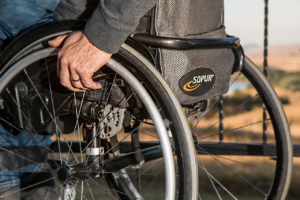
Life’s unpredictability means we often find ourselves facing unexpected health challenges. Whether it’s a sudden injury, an unforeseen illness, or an exacerbation of a chronic condition, having the knowledge and strategies to respond to urgent health issues is paramount. This comprehensive guide aims to equip you with the necessary tools to navigate such situations confidently and effectively.
Recognizing the Signs and Symptoms
Recognizing the signs and symptoms of a health emergency is the critical first step. Understanding your body’s signals can be the key to early intervention and better outcomes. Pay attention to subtle changes in your health, such as persistent pain, unusual fatigue, or changes in mental clarity. Often, these are the body’s early warning signs that shouldn’t be ignored. It’s crucial to be aware of more severe symptoms, too, such as difficulty breathing, chest pain, or sudden weakness, as these may indicate a more urgent situation. Trust your instincts, and if something feels off, don’t hesitate to seek medical attention promptly.
Contacting Emergency Services
In the heat of a health emergency, knowing how to contact emergency services efficiently can be a lifesaver. While 911 is the universal emergency number in many countries, it’s essential to know the specific emergency number in your region. You may also find a contact number for a local emergency service provider such as an urgent care center or local hospital on this website or your local government’s website. Save these numbers in your phone or keep them in a prominent place for easy access. When calling, remain calm and provide clear information about the situation. Accurate details about the location, nature of the emergency, and any pertinent information about the individual in distress help emergency responders act more effectively. Following the operator’s instructions is crucial as they can guide what immediate actions to take while waiting for professional help.
Basic First Aid Skills
Equipping yourself with basic first aid skills can make a significant difference in urgent health situations. Courses offered by organizations like the Red Cross cover essential techniques such as CPR, wound care, and how to assist someone who is choking. A well-stocked first aid kit containing items like bandages, antiseptic wipes, and pain relievers is an essential addition to your home or car. Knowing how to stabilize a person’s condition until professional help arrives can be crucial in those critical moments. Consider taking a first aid course to enhance your skills and confidence in providing immediate assistance.
Managing Medications Effectively
For those managing chronic conditions, the effective management of medications is paramount. Keeping an up-to-date list of medications, including doses and any known allergies, is crucial information for healthcare providers in emergencies. Having an emergency supply of essential medications on hand can be a practical measure to avoid disruptions in treatment. If unexpected symptoms or side effects arise, it’s crucial to consult with a healthcare professional promptly. Adjusting medication doses without proper guidance can have serious consequences, so seek professional advice to ensure the best course of action.
Creating a Health Emergency Plan
Proactivity is key when it comes to dealing with health emergencies. Developing a comprehensive health emergency plan ensures that you and your loved ones are well-prepared. Discuss and document important details such as emergency contacts, medical history, and preferred healthcare providers. Everyone involved should be aware of the location of essential documents, including insurance cards and identification. Regularly review and update the emergency plan, especially if there are changes in medications, contact information, or health conditions within the family. This preparedness ensures that crucial information is readily available when time is of the essence.
Navigating Urgent Care and Emergency Rooms
Understanding the nuances between urgent care facilities and emergency rooms can significantly impact the quality and speed of care received. Urgent care centers are ideal for non-life-threatening issues, offering quick service for minor injuries or illnesses. They are equipped to handle a range of medical situations without the extended wait times often associated with emergency rooms. Conversely, emergency rooms are the go-to for critical situations that require immediate attention, such as chest pain, severe trauma, or life-threatening conditions. Knowing the distinction between the two can help you make informed decisions during urgent health events, ensuring that you receive the most appropriate and timely care.
In the face of urgent health issues, the ability to respond promptly and effectively is invaluable. Recognizing symptoms, contacting emergency services, acquiring basic first aid skills, managing medications, creating a health emergency plan, and understanding healthcare options collectively empower you to navigate health crises with confidence. Always remember that staying calm and taking informed, swift action can make a significant difference in the outcome of a health emergency.




